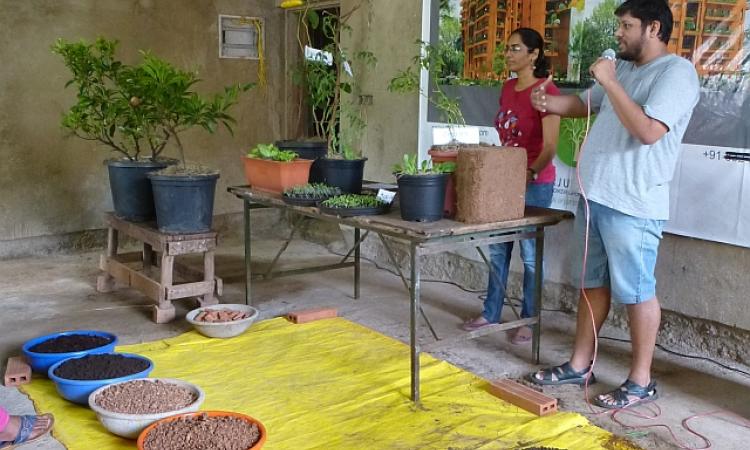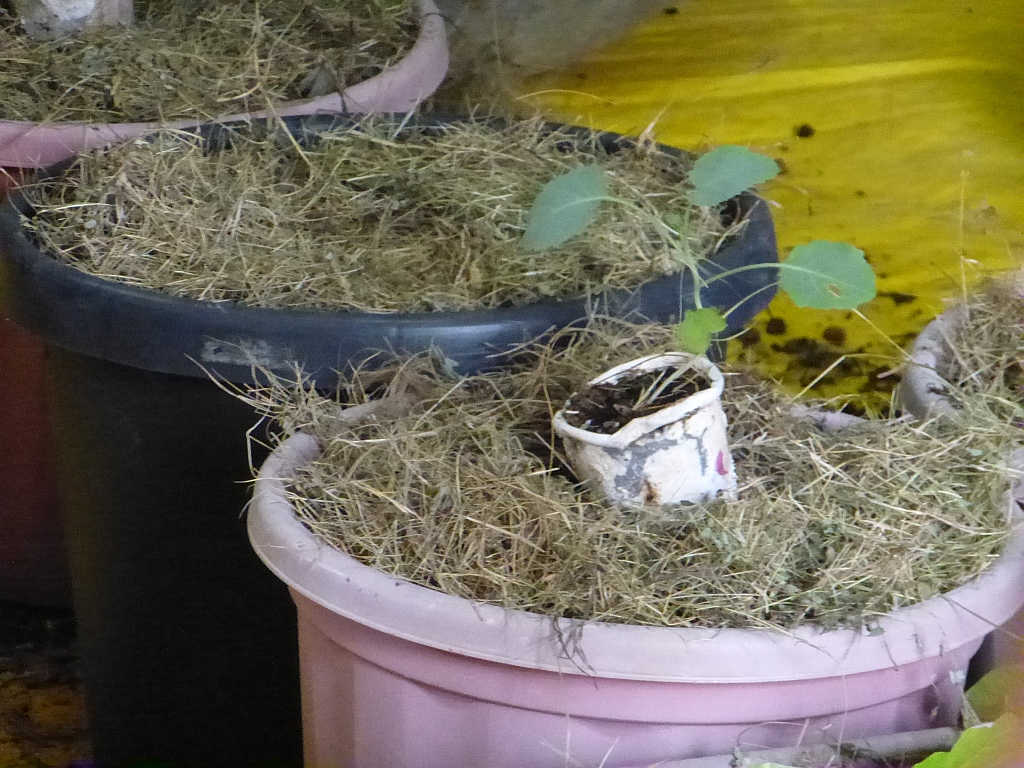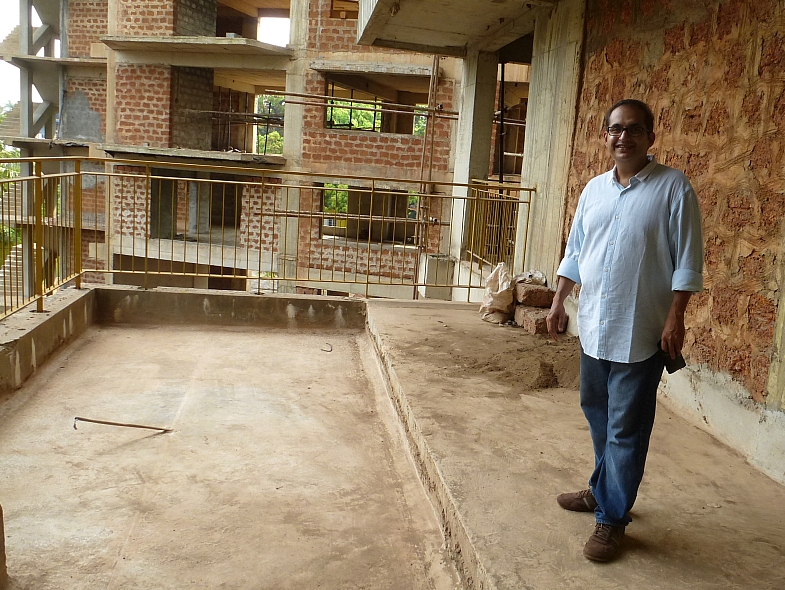
It was a sultry Sunday afternoon in Goa, the time traditionally reserved for heavy lunches followed by long siestas but the small crowd gathered at Arjuntree One in Margao defied the stereotype. They had come from all over the city to learn about an activity close to their hearts--growing their own food. It was not an academic exercise either; they seemed excited! But anyone would be excited to listen to Karan Manral and Yogita Mehra of Green Essentials as the young couple took the participants through the philosophy and mechanics of an organic potted kitchen gardens in four intensive hours. 
Sowing the seeds (of an idea)
It all began with a quest for vegetables. Tired of the tasteless and chemical-laden produce available in their markets, Karan and Yogita began looking for sources of tasty and healthy organic vegetables. They discovered that all produce in urban areas came from commercial farms; quality food was just not available. Many people they met were convinced that it was just not possible to reverse the trend, but our heroes set out to convince them otherwise.
Find a farmer or become one
There are two options available for the urban citizen who is in search of good food--find a good farmer or become one. Karan and Yogita set up Yogi Farms to handle the former option, and it provides services for small farms right from planning a garden to marketing the produce.
For the latter, Green Solutions conducts workshops on the rudiments of organic gardening. They also make available the infrastructure needed to make kitchen gardens by selling open pollinated seeds, seedlings, organic fertilisers and much of the other paraphrenlia required by the urban kitchen gardener.
Harvesting more than the crop
That this approach has worked seemed evident from the popularity of the workshops. Karan estimates that in the six years that they have been conducting these workshops, about 2,500 people have been trained across Goa. They have also helped design several kitchen and terrace gardens and remain in touch with many of their 'graduates'.
What impact does this increase in locally grown food have on the planet? Families reap social, environmental and financial benefits by growing a portion of their food. In a world where anywhere between 10-127 calories of fossil fuel is consumed to produce one calorie of food to the table, kitchen gardens can drastically reduce that number. However, the impact of urban gardens on water is mixed. Many urban families resort to using municipal water for their gardens. This practice burdens the already over-taxed supply systems and may well negate the environmental benefits of these gardens. Harvesting rainwater, using grey water (especially water from washing vegetables etc which does not have chemicals), and wise water management practices such as mulching are strongly recommended.
 No sunny balconies
No sunny balconies
The major challenge that urban gardeners face is opposition from their building societies and developers. Far too many buildings are constructed with a total lack of attention to sunny balconies. It almost seems like the idea is to keep the outdoors out as much as humanly (and concretely) possible. In the few cases where such balconies are available, building societies step in to object to container gardening on various grounds.
Karan and Yogita however, have a singularly odd idea. They believe that people are inherently good. As Karan explained, "Most people would choose environmentally friendly methods if they had a choice; they do not feel that they have a choice and so they opt for harmful methods". Raj Panandikar, the builder of Arjun Tree One, certainly reinforces that belief. His building incorporates several features that show a respect for the Earth's resources. The one that concerns us the most is that the building is designed with terrace gardens in mind.
Hanging gardens
Rather than design balconies with perfunctory waterproofing that might be damaged by plants, Raj has provided designated spaces for gardeners. These balconies have a sunken space to accommodate about 10-11 inches of soil--enough for carrots and other deep-rooted vegetables to grow. The balcony is protected by several layers of material to ensure water-tightness and prevent roots from damaging the concrete. Raj says that the cost factor related to waterproofing these layers is balanced out by the lack of having to tile it. When asked how people have reacted to this concept, "Mixed", was Raj's response. "Not everyone is passionate about gardening but those for whom it matters are absolutely thrilled. In fact, the first flat at Arjun Tree One was sold to a family who was enthusiastic enough about the idea that the balcony gardens clinched the deal".

Raj is an avid gardener himself, something he learned while watching his mother tend to her plants. So it didn't take much for him to realise the benefits of providing flat owners with a bit of garden space. Today, he spends about an hour a day in his terrace garden along with his toddler, something he feels that his clients might like to experience too. But it might take a bit more effort to convince other builders.
"For that", says Raj, "there needs to be demand". After all, it is in the construction industry's interests to satisfy their clients, so the more people demand a bit of garden space, the more builders will be hopefully comply.
/articles/sunny-balconies-and-hanging-gardens-goa